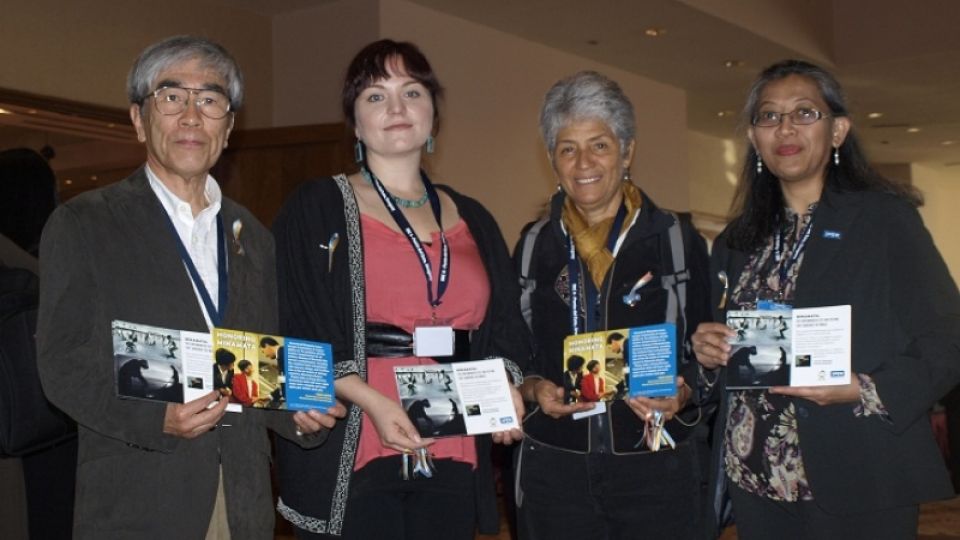Current text released at the 4th meeting for a global, legally binding treaty on mercury, underway in Punta del Este, Uruguay, refrains from requiring obligatory action to clean up contaminated sites. ”This is shocking,” said Jindrich Petrlik (Arnika Association, Czech Republic), Co-Chair of IPEN’s Heavy Metals Working Group, and added, “When contaminated communities ask what actions the mercury treaty requires, we have to answer: Parties will be required and permitted to do absolutely nothing. This is a very disappointing outcome.”
“Under the current draft treaty text, a contaminated site such as occurred in Minamata Bay, could be ignored, as there would be no obligation to identify it, clean it up, or deal with victims,” added Takeshi Yasuma from CACP, Japan. “It would be dishonorable to name a global mercury control treaty the “Minamata Convention” if the text itself allowed future Minamata disasters to occur.” In Minamata Bay many thousands of people got Minamata disease after Chisso Corporation irresponsibly released mercury into the sea.
There are only 4 sentences in the section on contaminated sites and there are no obligations to polluters either to pay for cleanup or to compensate victims. The text promotes a voluntary approach to contaminated sites and does not give poor countries any money to clean up contaminated sites. “Polluters can be satisfied that no one will be able to use the treaty to ask them to pay for careless contamination of the water and land or to compensate victims. Delegates left this burden on the victims’ and taxpayers’ shoulders,” protested Fernando Bejarano, INC4 Chair for IPEN, an international non-governmental organization attending the meeting and advocating for strong mercury control measures.
“We believe that Parties should be obligated to identify contaminated sites, characterize them, and then prioritize the worst ones for cleanup”, said Joe DiGangi, IPEN scientific advisor. Before the treaty is finalized at a meeting scheduled for January 2013, IPEN urges negotiators to re-visit this decision, make actions obligatory, and include text that holds polluters and governments responsible for remediation of contaminated sites and compensates victims caused by the contamination.







